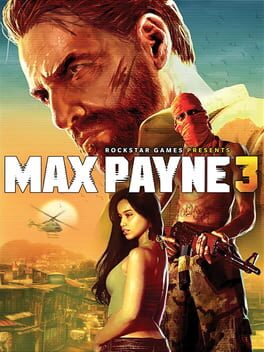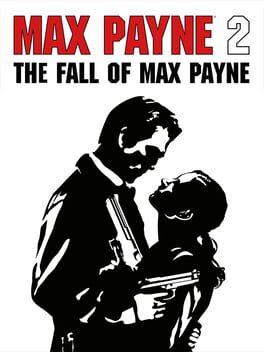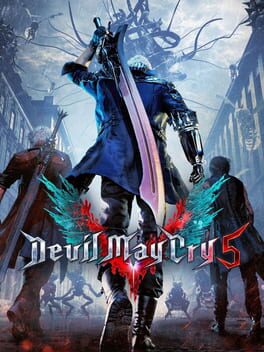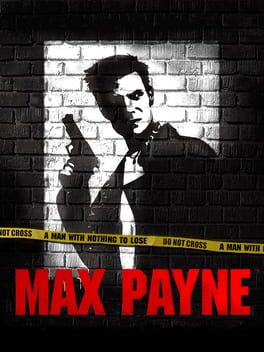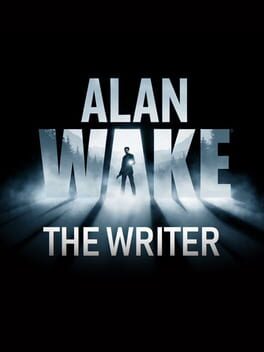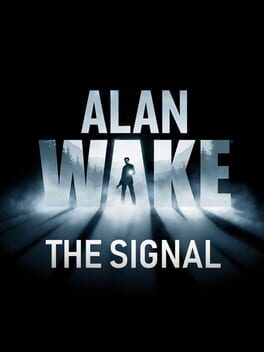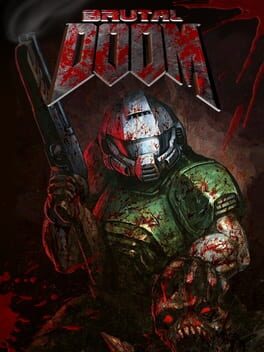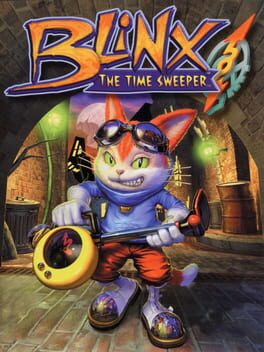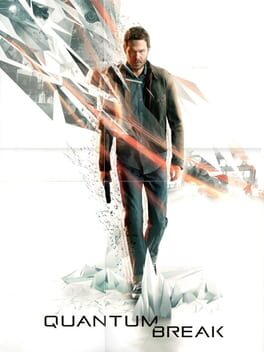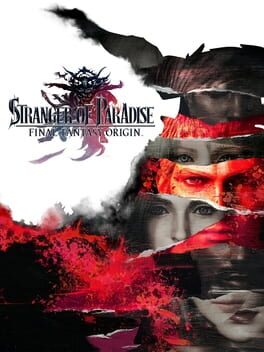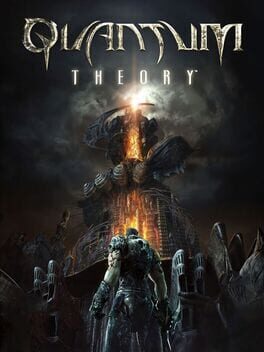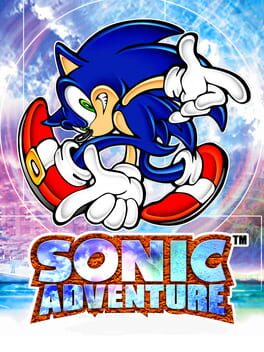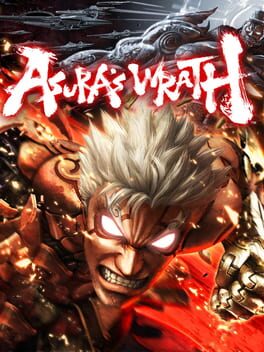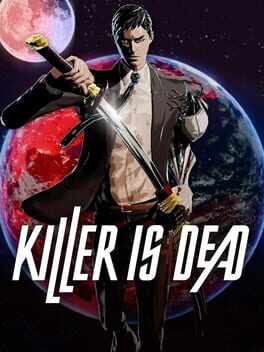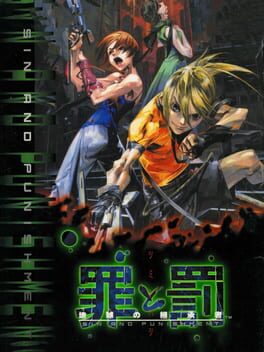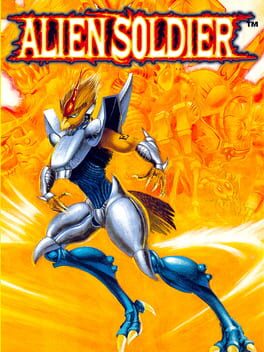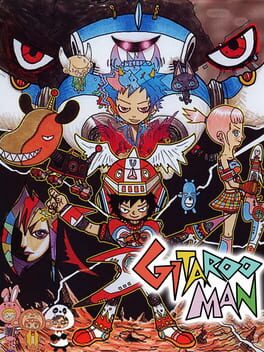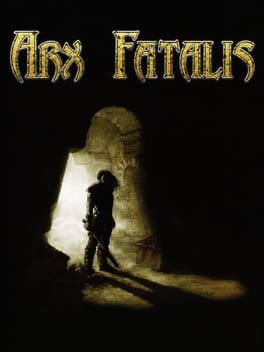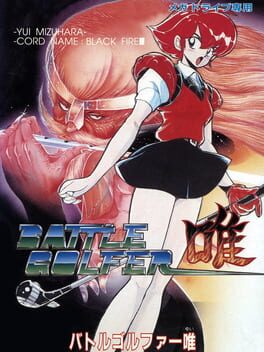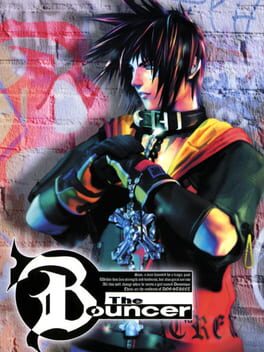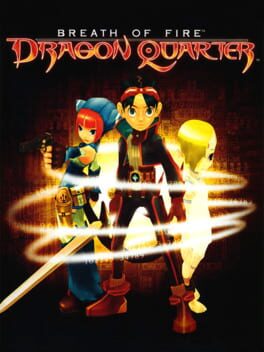unyun
178 reviews liked by unyun
Max Payne 3
2012
Before this review starts, I would like to preface that this is by no means an actual, in-depth critical review of Max Payne 3. I won’t be touching the story or gameplay AT ALL in this, so let that be warned. This is purely about how I feel about Max Payne 3’s portrayal of my region of Brazil and how it affected my enjoyment of it to the point where I just can’t really stand it and think it is one of the most racist video games ever made. I can’t wrap my head around the fact that Resident Evil 5 is frequently cited as a super racist video game when Max Payne 3 is literally right there and does the exact same things that game does!
The average person who played Max Payne 3 will probably not bother to do an inch of research on the country of Brazil, probably thinks Rio is the capital, and believes that it is an absolute warzone hellhole where people get shot on the street constantly. This is the kind of audience Rockstar was trying to appeal to with this game. I do not believe, even for a second, that they made this game out of respect for Brazil. They simply wanted a 3rd world country to throw their white American hero into so he could shoot and kill without a care in the world, because the 3rd world is so lawless, right? They wanted to portray their weird, twisted view of Brazil so much that they even went so far as to scan a thousand residents of the favela of Paraisópolis into the game, acting as backdrop NPCs in the chapters that do take place in the favela. You can kill actual residents of São Paulo in Max Payne 3, which is crazy once you consider how the rest of the game handles this stuff. You can sit there in your little house just outside Little Rock, Arkansas, and get your greasy hands on the controller and shoot at people who were probably paid less than a penny for their faces to be plastered onto enemies. It's the most pure depiction of the average 40-something-year-old American going to a country that doesn't belong to you and killing brown people for fun!
There is so much arrogance in Rockstar's approach to developing Max Payne 3. A huge inspiration for the game was the 2007 Brazilian movie “Tropa de Elite," which is very funny once you learn what that movie is about. It's like Rockstar saw that movie as just an average cool awesome shooter romp through a favela and not as a critique of Brazil’s problems and struggle with violence. I think taking a movie that presents a very thoughtful critique of violence and using it for their little American power fantasy video game is insanely disrespectful. But it’s not like it really matters to the audience for this game. The audience doesn’t know what "Tropa de Elite" is; most of them couldn’t even tell what language Brazil speaks, and most of them probably don’t even know Portuguese is a language. It appeals to the naive, the Americans, who think going to Brazil to shoot at some mixed-race thugs is the coolest thing in the world because they can live out their little soldier hero fantasy.
The depiction of lawful Brazilian citizens, who all seem to hate gringos and be aggressive on sight despite Brazil frequently being cited as one of the most friendly countries to foreigners, is an objectively wrong, offensive depiction. Brazilians do not hate gringos; I, being one myself and being friends with a lot of gringos and foreigners, can personally attest to this. I have been around a lot of São Paulo because I live fairly close to it and there are always gringos around, and no one minds, and in fact, most Brazilians really enjoy helping out gringos or foreigners in any way they can! Rockstar seems to have this weird, twisted idea that since it's a favela and not the clean, corporate building of the Brancos, the people are totally different. The people from the favelas are wonderful people, despite the bad hand most of them have been dealt in life: stuck in poverty, living in run-down buildings on top of other buildings, stacked up so high. They have a resilient spirit; they, to me, represent the Brazilian spirit more than any other group of people in this world, and I respect them deeply for it. I think choosing to depict these people as inherently hostile to Max, the American hero, is so disrespectful to them and their home and the culture they were raised around, and it paints a picture that is absolutely not true. I believe Rockstar chose to depict the favelas like that because it would sell. The depiction of the favelas as lawless wastelands with gangsters and thugs at every corner is the most pure evidence you could find of the ignorance of the average American writer. You can visit a country and study it, see how it is, then go home to your little flat in your little apartment and depict it in a way that would make sense to your audience, which is the American, the one you want to please because they at the end of the day give you money; the citizens of São Paulo don’t really matter in the end much at all, and their input was never needed.
Brazil already gets misrepresented by the world at large, and I am a firm believer that media can affect and alter reality and how people perceive things in significant ways. Rockstar seemed to be drawn in by the allure of Brazil that exists in the minds of only foreigners and not the actual experience of the average Brazilian. The funk, the favela, the scorching sun, the people, the beaches, the drinking, the soccer—everything that people stereotype Brazilians as is present in this game! I don’t feel proud saying this is THE game that takes place where I live, that this is THE game that is supposed to “represent” São Paulo. I personally struggled with my Brazilian identity for a long time because of certain notions and preconceptions people held and still hold against Brazilians, particularly online, which tends to get very very nasty and racist. And I cannot sit here and pretend like I am fine with the way these Americans wrote about my country and my people.
Even when you get to the real villains of the game, the Brazilian UFE and Victor Branco, the game never changes from its weird attitude towards Brazilians. Chapter 12 is literally named “The Great American Savior of the Poor,” and as ironic as Rockstar’s intent may have been while writing that, they characterize Max and Brazilians in such a way that that is actually the case! He stops the Comando Sombra, he stops the UFE, he stops political corruption, and he saves a bunch of favela citizens from getting their organs harvested. He, a white American man, really does become the savior of the poor through this game's absolutely naive and frankly stupidly racist writing. And the critique itself towards the Brazilian police and political world is absolutely shallow and warped. I mean, Victor Branco is kind of a silly caricature of a stereotypical corrupt Brazilian politician, but the game doesn’t really delve any deeper than that, and it frankly makes me quite sad. Just a few years after this game came out, Operation Car Wash started, and honestly, I wish this game had come out during that time frame so they could have developed that plot point further. But then I also worry they would’ve handled it in the worst way possible and made the most Brazilian right-wing propaganda piece video game of all time, and that thought alone sends shivers down my spine. Like Imagine in your head right now a game so right-wing Bolsonaro would probably use clips of it in his 2018 campaign. I already think the game is inherently right-leaning simply because of the way it handles a lot of the subject matter, and I honestly fear what a 2017 Max Payne 3 taking place in Brazil during the Temer era would look like...
If it seems like I have gotten emotional or angry while writing this, it is because I have! I do not live in the city of São Paulo proper; I live on the coast. But I have been to São Paulo quite often in my life due to a few of my relatives living there, and those relatives live in the parts that Max Payne 3 chose specifically to depict. It makes me sad that this is the product that was made; this is what Rockstar chose to depict of my family, my friends, and my country. To the people that live here, to the people that know and love people that live in the world Max Payne 3 chose to take place in, it is a very painful experience to go through again and again. São Paulo is really a beautiful state, and most will never ever get to experience it; only the people that have lived here would really understand how amazing and beautiful it truly can be. But to the average audience that loves Rockstar, all of this is alright and fine by them; they’re never going to feel offended, and they’re never going to have a problem with it. They’re never going to feel their blood pressure rise when the game says something so insanely racist you have to take a step back. They’re never going to wonder how their friends and family are viewed due to the negative connotations being from a favela already carried, made worse by a totally inept and ignorant development team. Because they don’t care. To the average American consumer, it is just another game set in a "shithole," a "warzone," where they get to escape their privileged realities and pretend they’re some sort of hero. Rockstar manages to reinforce every single negative stereotype about Brazil for these people. And they’re going to eat it up; they’ll believe it because they are inherently ignorant. It is a game made for Americans, not for the Brazilian people, and there is nothing more American than pretending to be a badass hero in some “shithole” where the only goal is to kill as many brown people as possible.
I have gone on a few tangents here and there, but I have stated my case. Max Payne 3 is a racist video game, plain and simple. It's not going to beat around the bush and pretend it's because Rockstar is doing it by accident because it honestly feels very deliberate. They had writers approve a lot of this stuff, and it baffles me that at no point a writer went and said how kind of messed up it all is. I will leave a single quote here that I feel perfectly illustrates what I mean by all of this:
“We’d half destroyed São Paulo’s most hallowed place of worship.” A stadium.
The average person who played Max Payne 3 will probably not bother to do an inch of research on the country of Brazil, probably thinks Rio is the capital, and believes that it is an absolute warzone hellhole where people get shot on the street constantly. This is the kind of audience Rockstar was trying to appeal to with this game. I do not believe, even for a second, that they made this game out of respect for Brazil. They simply wanted a 3rd world country to throw their white American hero into so he could shoot and kill without a care in the world, because the 3rd world is so lawless, right? They wanted to portray their weird, twisted view of Brazil so much that they even went so far as to scan a thousand residents of the favela of Paraisópolis into the game, acting as backdrop NPCs in the chapters that do take place in the favela. You can kill actual residents of São Paulo in Max Payne 3, which is crazy once you consider how the rest of the game handles this stuff. You can sit there in your little house just outside Little Rock, Arkansas, and get your greasy hands on the controller and shoot at people who were probably paid less than a penny for their faces to be plastered onto enemies. It's the most pure depiction of the average 40-something-year-old American going to a country that doesn't belong to you and killing brown people for fun!
There is so much arrogance in Rockstar's approach to developing Max Payne 3. A huge inspiration for the game was the 2007 Brazilian movie “Tropa de Elite," which is very funny once you learn what that movie is about. It's like Rockstar saw that movie as just an average cool awesome shooter romp through a favela and not as a critique of Brazil’s problems and struggle with violence. I think taking a movie that presents a very thoughtful critique of violence and using it for their little American power fantasy video game is insanely disrespectful. But it’s not like it really matters to the audience for this game. The audience doesn’t know what "Tropa de Elite" is; most of them couldn’t even tell what language Brazil speaks, and most of them probably don’t even know Portuguese is a language. It appeals to the naive, the Americans, who think going to Brazil to shoot at some mixed-race thugs is the coolest thing in the world because they can live out their little soldier hero fantasy.
The depiction of lawful Brazilian citizens, who all seem to hate gringos and be aggressive on sight despite Brazil frequently being cited as one of the most friendly countries to foreigners, is an objectively wrong, offensive depiction. Brazilians do not hate gringos; I, being one myself and being friends with a lot of gringos and foreigners, can personally attest to this. I have been around a lot of São Paulo because I live fairly close to it and there are always gringos around, and no one minds, and in fact, most Brazilians really enjoy helping out gringos or foreigners in any way they can! Rockstar seems to have this weird, twisted idea that since it's a favela and not the clean, corporate building of the Brancos, the people are totally different. The people from the favelas are wonderful people, despite the bad hand most of them have been dealt in life: stuck in poverty, living in run-down buildings on top of other buildings, stacked up so high. They have a resilient spirit; they, to me, represent the Brazilian spirit more than any other group of people in this world, and I respect them deeply for it. I think choosing to depict these people as inherently hostile to Max, the American hero, is so disrespectful to them and their home and the culture they were raised around, and it paints a picture that is absolutely not true. I believe Rockstar chose to depict the favelas like that because it would sell. The depiction of the favelas as lawless wastelands with gangsters and thugs at every corner is the most pure evidence you could find of the ignorance of the average American writer. You can visit a country and study it, see how it is, then go home to your little flat in your little apartment and depict it in a way that would make sense to your audience, which is the American, the one you want to please because they at the end of the day give you money; the citizens of São Paulo don’t really matter in the end much at all, and their input was never needed.
Brazil already gets misrepresented by the world at large, and I am a firm believer that media can affect and alter reality and how people perceive things in significant ways. Rockstar seemed to be drawn in by the allure of Brazil that exists in the minds of only foreigners and not the actual experience of the average Brazilian. The funk, the favela, the scorching sun, the people, the beaches, the drinking, the soccer—everything that people stereotype Brazilians as is present in this game! I don’t feel proud saying this is THE game that takes place where I live, that this is THE game that is supposed to “represent” São Paulo. I personally struggled with my Brazilian identity for a long time because of certain notions and preconceptions people held and still hold against Brazilians, particularly online, which tends to get very very nasty and racist. And I cannot sit here and pretend like I am fine with the way these Americans wrote about my country and my people.
Even when you get to the real villains of the game, the Brazilian UFE and Victor Branco, the game never changes from its weird attitude towards Brazilians. Chapter 12 is literally named “The Great American Savior of the Poor,” and as ironic as Rockstar’s intent may have been while writing that, they characterize Max and Brazilians in such a way that that is actually the case! He stops the Comando Sombra, he stops the UFE, he stops political corruption, and he saves a bunch of favela citizens from getting their organs harvested. He, a white American man, really does become the savior of the poor through this game's absolutely naive and frankly stupidly racist writing. And the critique itself towards the Brazilian police and political world is absolutely shallow and warped. I mean, Victor Branco is kind of a silly caricature of a stereotypical corrupt Brazilian politician, but the game doesn’t really delve any deeper than that, and it frankly makes me quite sad. Just a few years after this game came out, Operation Car Wash started, and honestly, I wish this game had come out during that time frame so they could have developed that plot point further. But then I also worry they would’ve handled it in the worst way possible and made the most Brazilian right-wing propaganda piece video game of all time, and that thought alone sends shivers down my spine. Like Imagine in your head right now a game so right-wing Bolsonaro would probably use clips of it in his 2018 campaign. I already think the game is inherently right-leaning simply because of the way it handles a lot of the subject matter, and I honestly fear what a 2017 Max Payne 3 taking place in Brazil during the Temer era would look like...
If it seems like I have gotten emotional or angry while writing this, it is because I have! I do not live in the city of São Paulo proper; I live on the coast. But I have been to São Paulo quite often in my life due to a few of my relatives living there, and those relatives live in the parts that Max Payne 3 chose specifically to depict. It makes me sad that this is the product that was made; this is what Rockstar chose to depict of my family, my friends, and my country. To the people that live here, to the people that know and love people that live in the world Max Payne 3 chose to take place in, it is a very painful experience to go through again and again. São Paulo is really a beautiful state, and most will never ever get to experience it; only the people that have lived here would really understand how amazing and beautiful it truly can be. But to the average audience that loves Rockstar, all of this is alright and fine by them; they’re never going to feel offended, and they’re never going to have a problem with it. They’re never going to feel their blood pressure rise when the game says something so insanely racist you have to take a step back. They’re never going to wonder how their friends and family are viewed due to the negative connotations being from a favela already carried, made worse by a totally inept and ignorant development team. Because they don’t care. To the average American consumer, it is just another game set in a "shithole," a "warzone," where they get to escape their privileged realities and pretend they’re some sort of hero. Rockstar manages to reinforce every single negative stereotype about Brazil for these people. And they’re going to eat it up; they’ll believe it because they are inherently ignorant. It is a game made for Americans, not for the Brazilian people, and there is nothing more American than pretending to be a badass hero in some “shithole” where the only goal is to kill as many brown people as possible.
I have gone on a few tangents here and there, but I have stated my case. Max Payne 3 is a racist video game, plain and simple. It's not going to beat around the bush and pretend it's because Rockstar is doing it by accident because it honestly feels very deliberate. They had writers approve a lot of this stuff, and it baffles me that at no point a writer went and said how kind of messed up it all is. I will leave a single quote here that I feel perfectly illustrates what I mean by all of this:
“We’d half destroyed São Paulo’s most hallowed place of worship.” A stadium.
Max Payne 3
2012
PRESS E TO EXAMINE THE CLUE
Max: "I needed to stop dawdling. People were dying, and I was just standing here."
Giovanna : "AHHHHHHHHHHHHH MAX NOO! THEY'RE SHOOTING AT ME MAX!!!"
Max: "Giovanna had a lot of courage. And she was smart. Very competent woman in a lot of respects. But right now, she needed me to shoot these guys before she ran out from behind cover in a hysterical panic."
Evil Brazilian military cop: "Stupid American! You don't even know our language! How could you hope to understand this?"
Max Payne: "Maybe I was a dumb, violent gringo subsisting on whisky and my own self-pity, but I still needed to do what needed to be done. Brazil was diseased to its core, the roads and rivers were a circulatory system filled with sewage and cocaine. I was a white blood cell sent to tear out the infection, one U.F.E and gangbanger at a time. But still... I had sympathy. These people had been raised to hate middle-income assholes with delusions of grandeur (GRANDEUR) like me, but that wasn't gonna stop me from saving the decent folks who just happened to live in this cesspool.... everything slowed down. That AC unit looks loose. I can shoot the air conditioning unit to make it fall."
COLLECTED! GOLDEN SMG PARTS: 2/3!
Max: "I had let these scumbags go the first time. But now, they were about to have their way with a gorgeous female woman. Not on my watch."
ACHIEVEMENT UNLOCKED: "YOWCH! Shoot 100 guys in the dick"
Edit: To actually explain my thoughts on MP3 in a non-goofy ahhh way, the shoot dodge is very fun and it leans into the ugliness of Max as a character and makes gunplay feel genuinely morbid and grisly in a way I liked. great cutscene direction as well and in theory I like Max's arc here, but those elements come along with some very Xbox 360 racism/annoying third person shooter design from that era that feels as if it's rubbing up against the tone. should've been called White Man's Hurtin'.
Would really recommend reading this review by replicantgestalt for a way more detailed and informed take on how it handles Brazil as a setting: https://backloggd.com/u/replicantgestalt/review/1541848/
Max: "I needed to stop dawdling. People were dying, and I was just standing here."
Giovanna : "AHHHHHHHHHHHHH MAX NOO! THEY'RE SHOOTING AT ME MAX!!!"
Max: "Giovanna had a lot of courage. And she was smart. Very competent woman in a lot of respects. But right now, she needed me to shoot these guys before she ran out from behind cover in a hysterical panic."
Evil Brazilian military cop: "Stupid American! You don't even know our language! How could you hope to understand this?"
Max Payne: "Maybe I was a dumb, violent gringo subsisting on whisky and my own self-pity, but I still needed to do what needed to be done. Brazil was diseased to its core, the roads and rivers were a circulatory system filled with sewage and cocaine. I was a white blood cell sent to tear out the infection, one U.F.E and gangbanger at a time. But still... I had sympathy. These people had been raised to hate middle-income assholes with delusions of grandeur (GRANDEUR) like me, but that wasn't gonna stop me from saving the decent folks who just happened to live in this cesspool.... everything slowed down. That AC unit looks loose. I can shoot the air conditioning unit to make it fall."
COLLECTED! GOLDEN SMG PARTS: 2/3!
Max: "I had let these scumbags go the first time. But now, they were about to have their way with a gorgeous female woman. Not on my watch."
ACHIEVEMENT UNLOCKED: "YOWCH! Shoot 100 guys in the dick"
Edit: To actually explain my thoughts on MP3 in a non-goofy ahhh way, the shoot dodge is very fun and it leans into the ugliness of Max as a character and makes gunplay feel genuinely morbid and grisly in a way I liked. great cutscene direction as well and in theory I like Max's arc here, but those elements come along with some very Xbox 360 racism/annoying third person shooter design from that era that feels as if it's rubbing up against the tone. should've been called White Man's Hurtin'.
Would really recommend reading this review by replicantgestalt for a way more detailed and informed take on how it handles Brazil as a setting: https://backloggd.com/u/replicantgestalt/review/1541848/
I think they should have kept Max's ridiculous slow-mo reload twirl from here in Max Payne 3. It would contrast nicely against the extremely detailed renderings of entrance/exit wounds and lighten the mood. The fact that he doesn't even have the whimsy to do it in that game really does illustrate that even when we see him here there's still hope in his heart. You can always fall farther
Devil May Cry 5
2019
Max Payne
2001
"After Y2K, the End of the World had become a cliché. But who was I to talk? A brooding underdog avenger alone against an empire of evil, out to right a grave injustice? Everything was subjective. There were no personal apocalypses. Nothing is a cliché when it's happening to you."
In Max Payne, New York City comes first. We have a few moments just with the city, and the chatter of police scanners cutting through the howling snowstorm, before Max hits us with one of his characteristic delightfully purple parodic noir metaphor.
This might not seem worth noting, given what a tiny slice of the game it is, but I think it's important in the context of how the rest of the game's narrative is portrayed (mostly from Max's narration) and from the rest of Remedy's games that followed in Max Payne's lineage. Control, Quantum Break, and Alan Wake all open with their protagonists and their narration before the world, giving the player no time to form an impression of it outside the lens of our central character. Alan Wake offers the greatest window of time for this at a whopping two seconds before he starts banging on about Stephen King. So Max Payne giving us about a minute of time in snow-covered New York feels almost luxurious in comparison. And then Max Payne barges in, bringing Helheim with him.
I spend so much time pointing this out because any attempt to talk about what Max Payne is doing on any level below the surface makes one sound like a particularly unhinged conspiracy theorist, something that Remedy are explicitly aware of and has playfully prodded at in their future game Control in particular. Part of this is the conscious silliness of the surface-level: comic-sans narration boxes filled with prose so purple it can make fine wine, and, of course, the way the entire story is told through delightful school-play images made from the developers and their friends and family putting on ill-fitting outfits and making silly faces. There is a pervasive charm to all of this that invites luxuriating in it, but I think a common mistake one can make when reading any work is to simply assume that something is thoughtless because it's a bit silly. Remedy was not somehow unaware of the fact that they were a bunch of nerds and their relations playing dress-up, and indeed, lean into it.
The archness, the artifice, and the absolute over-the-top-ness of it all, evokes the tropes and styles it is pulling from so bluntly that it becomes solid in the mind, manifesting into a brick thrown at your face that then falls into your lap, remaining there and weighing on you, never letting you forget what it's doing. From the comic panels, to the tvs throughout the levels playing broad parodies of soap operas, Twin Peaks, and, uh, The News, to Max Payne himself, as he intrudes upon the serenity of New York at the beginning, a noir cliche diving in through the door from one of the better issues of Frank Miller's Sin City (the comic panels and narration and image of a city in white bearing greater similarity to those comics than anything starring Philip Marlowe) and leaving reality covered with bullet holes in his wake.
But here's the thing. He doesn't close the door behind him. And slowly, other things start to creep in.
A superhero with a baseball bat climbs out of a comic strip and into the head of a mob torturer who is a fan of the comic. The apocalyptic snowstorm that blankets the city of New York, and the pervasive Norse Mythology references that litter the game, crawl out of a book about Ragnarok being read by someone in the club Ragna Rock. Max's actions are fed into a news cycle that makes entertainment out of it. The game's genre references become recursive and circular, wrapping in on themselves over and over. Max becomes aware of his own status as a loose cannon cop out for revenge. Mobsters make themselves into occult monstrosities in order to survive. People write fiction. Fiction crawls into peoples' heads, influences them, and through them, the world. And then people carry those ideas back into fiction. People imposing on fiction, fiction imposing on the world. On and on it goes.
It is an imposition the player performs as well. I can't bring too much to the table in terms of the mechanical construction of Max Payne's fantastic moment-to-moment gunplay, as in many ways, the sheer joy of diving in slow-motion through a doorway and riddling an entire room of goons yelling "PAYNE!" full of holes simply speaks for itself with more wit than I could ever manage. However, one thing I do want to mention is something has, to a certain extent, been obscured by successive ports to consoles and phones and back to the PC. Max Payne was a PC game first and, I think, foremost, and understanding this is key to understanding how the game handles checkpoints, or, to be more accurate, how the game doesn't. Autosave points are extremely few and far between, and most deaths will take you back to the start of the level, and these deaths come quickly and mercilessly, with only a single mistake standing between Max and the grave eagerly awaiting him.
Of course, the game does not actually expect you to restart from the beginning of each level every single time. The game expects - an assumption that was reasonable given that this behavior was ubiquitous across Max Payne's contemporaries on the platform - for you to manually save the game and create your own checkpoints from which Max can resume his story after his next future full stop. This seemingly innocuous feature might be the game's cleverest ludic move, as together with fast deaths and often-scarce painkillers demanding a certain degree of trial-and-error perfectionism, the player is put into the role of director, cutting the action when they are satisfied with the scene as it played out. It is a system that imposes storytelling structure onto every aspect of play, including even the act of entering the pause screen to save and reload into its all-consuming storyboard.
On every level of it's construction, Max Payne is a game about stories insinuating themselves, loudly and quietly, into the real, and it's surprising to find the DNA that runs through Alan Wake, Quantum Break, and Control already fully-formed in (Death Rally aside) the studio's debut title, arguably more deftly and charismatically than any of those later works would manage. The strength of Max Payne is that unlike, say, Alan Wake, all of this is left to crawl around the periphery, only bubbling up very occasionally, allowing the player to put together the disparate images in their head, like a detective attempting to solve a mystery by staring at connected pins on a bulletin board. Indeed, I don't know if I would have the confidence to make this read if not for Remedy's future work pulling on all this stuff much more explicitly. Max comments on some stuff, but not all, and one of the most compelling images the game has to offer eludes his notice completely.
Late in the game, Max is recruited by a shadowy illuminati-like organization known as the Inner Circle, and learns that pretty much everything in the plot stems from their influence, and in particular, from one of their number who manufactured the US Military super-soldier drug that drives the game's plot: Valkyr. In his own piece on the game, critic Noah Gervais explains Valkyr, the hilariously cartoonish green goop drug that has it's origins in a military super-soldier project, as a kind of uniquely video-game pulp that bleeds in from what was typical for video games in that moment, and I would say that is fairly accurate. Where I deviate from Gervais is that he finds Valkyr to be a kind of ancillary element, something that emerges out of the video game milieu of the time rather than an intentional element, and that is where I disagree. Valkyr is a consciously artificial video game trope that begins this video game, in the same way that Max's dead family is a consciously Noir trope that begins this Noir story, created by a US military project run by a member of a secret organization who's headquarters is draped in conspicuous US historical ephemera, from the room looking like the briefing room of the White House, to the Washington Monument replica at the center of it all.
There was something disturbingly familiar about the letter before me, the handwriting was all pretty curves.
"You are in an American world, Max."
The truth was a burning green crack through my brain. The film noir aesthetic, the American comic influence, even the bullet-time mechanics derived from a filmmaker who, contemporaneously, was being consumed by the Hollywood machine making strange twists on the Hong Kong action films he so excelled at.
I was in a cultural world shaped by the hegemonic influence of American fiction. Funny as hell, it was the most horrible thing I could think of.
Everything after this point, after this moment, is perfunctory. The point is made, the statement is said. As Max would put it, the final gunshot is merely the exclamation mark to everything that led to this point. He fulfills his duties to the game and the genre strangely quietly, defeats the villain, and is taken away in the back of the car, knowing exactly what has, what is, and what will happen.
He releases his finger from the trigger, and then it is over.
Until you start again.
Try Hard Boiled mode or New York Minute mode for the next challenge!
In Max Payne, New York City comes first. We have a few moments just with the city, and the chatter of police scanners cutting through the howling snowstorm, before Max hits us with one of his characteristic delightfully purple parodic noir metaphor.
This might not seem worth noting, given what a tiny slice of the game it is, but I think it's important in the context of how the rest of the game's narrative is portrayed (mostly from Max's narration) and from the rest of Remedy's games that followed in Max Payne's lineage. Control, Quantum Break, and Alan Wake all open with their protagonists and their narration before the world, giving the player no time to form an impression of it outside the lens of our central character. Alan Wake offers the greatest window of time for this at a whopping two seconds before he starts banging on about Stephen King. So Max Payne giving us about a minute of time in snow-covered New York feels almost luxurious in comparison. And then Max Payne barges in, bringing Helheim with him.
I spend so much time pointing this out because any attempt to talk about what Max Payne is doing on any level below the surface makes one sound like a particularly unhinged conspiracy theorist, something that Remedy are explicitly aware of and has playfully prodded at in their future game Control in particular. Part of this is the conscious silliness of the surface-level: comic-sans narration boxes filled with prose so purple it can make fine wine, and, of course, the way the entire story is told through delightful school-play images made from the developers and their friends and family putting on ill-fitting outfits and making silly faces. There is a pervasive charm to all of this that invites luxuriating in it, but I think a common mistake one can make when reading any work is to simply assume that something is thoughtless because it's a bit silly. Remedy was not somehow unaware of the fact that they were a bunch of nerds and their relations playing dress-up, and indeed, lean into it.
The archness, the artifice, and the absolute over-the-top-ness of it all, evokes the tropes and styles it is pulling from so bluntly that it becomes solid in the mind, manifesting into a brick thrown at your face that then falls into your lap, remaining there and weighing on you, never letting you forget what it's doing. From the comic panels, to the tvs throughout the levels playing broad parodies of soap operas, Twin Peaks, and, uh, The News, to Max Payne himself, as he intrudes upon the serenity of New York at the beginning, a noir cliche diving in through the door from one of the better issues of Frank Miller's Sin City (the comic panels and narration and image of a city in white bearing greater similarity to those comics than anything starring Philip Marlowe) and leaving reality covered with bullet holes in his wake.
But here's the thing. He doesn't close the door behind him. And slowly, other things start to creep in.
A superhero with a baseball bat climbs out of a comic strip and into the head of a mob torturer who is a fan of the comic. The apocalyptic snowstorm that blankets the city of New York, and the pervasive Norse Mythology references that litter the game, crawl out of a book about Ragnarok being read by someone in the club Ragna Rock. Max's actions are fed into a news cycle that makes entertainment out of it. The game's genre references become recursive and circular, wrapping in on themselves over and over. Max becomes aware of his own status as a loose cannon cop out for revenge. Mobsters make themselves into occult monstrosities in order to survive. People write fiction. Fiction crawls into peoples' heads, influences them, and through them, the world. And then people carry those ideas back into fiction. People imposing on fiction, fiction imposing on the world. On and on it goes.
It is an imposition the player performs as well. I can't bring too much to the table in terms of the mechanical construction of Max Payne's fantastic moment-to-moment gunplay, as in many ways, the sheer joy of diving in slow-motion through a doorway and riddling an entire room of goons yelling "PAYNE!" full of holes simply speaks for itself with more wit than I could ever manage. However, one thing I do want to mention is something has, to a certain extent, been obscured by successive ports to consoles and phones and back to the PC. Max Payne was a PC game first and, I think, foremost, and understanding this is key to understanding how the game handles checkpoints, or, to be more accurate, how the game doesn't. Autosave points are extremely few and far between, and most deaths will take you back to the start of the level, and these deaths come quickly and mercilessly, with only a single mistake standing between Max and the grave eagerly awaiting him.
Of course, the game does not actually expect you to restart from the beginning of each level every single time. The game expects - an assumption that was reasonable given that this behavior was ubiquitous across Max Payne's contemporaries on the platform - for you to manually save the game and create your own checkpoints from which Max can resume his story after his next future full stop. This seemingly innocuous feature might be the game's cleverest ludic move, as together with fast deaths and often-scarce painkillers demanding a certain degree of trial-and-error perfectionism, the player is put into the role of director, cutting the action when they are satisfied with the scene as it played out. It is a system that imposes storytelling structure onto every aspect of play, including even the act of entering the pause screen to save and reload into its all-consuming storyboard.
On every level of it's construction, Max Payne is a game about stories insinuating themselves, loudly and quietly, into the real, and it's surprising to find the DNA that runs through Alan Wake, Quantum Break, and Control already fully-formed in (Death Rally aside) the studio's debut title, arguably more deftly and charismatically than any of those later works would manage. The strength of Max Payne is that unlike, say, Alan Wake, all of this is left to crawl around the periphery, only bubbling up very occasionally, allowing the player to put together the disparate images in their head, like a detective attempting to solve a mystery by staring at connected pins on a bulletin board. Indeed, I don't know if I would have the confidence to make this read if not for Remedy's future work pulling on all this stuff much more explicitly. Max comments on some stuff, but not all, and one of the most compelling images the game has to offer eludes his notice completely.
Late in the game, Max is recruited by a shadowy illuminati-like organization known as the Inner Circle, and learns that pretty much everything in the plot stems from their influence, and in particular, from one of their number who manufactured the US Military super-soldier drug that drives the game's plot: Valkyr. In his own piece on the game, critic Noah Gervais explains Valkyr, the hilariously cartoonish green goop drug that has it's origins in a military super-soldier project, as a kind of uniquely video-game pulp that bleeds in from what was typical for video games in that moment, and I would say that is fairly accurate. Where I deviate from Gervais is that he finds Valkyr to be a kind of ancillary element, something that emerges out of the video game milieu of the time rather than an intentional element, and that is where I disagree. Valkyr is a consciously artificial video game trope that begins this video game, in the same way that Max's dead family is a consciously Noir trope that begins this Noir story, created by a US military project run by a member of a secret organization who's headquarters is draped in conspicuous US historical ephemera, from the room looking like the briefing room of the White House, to the Washington Monument replica at the center of it all.
There was something disturbingly familiar about the letter before me, the handwriting was all pretty curves.
"You are in an American world, Max."
The truth was a burning green crack through my brain. The film noir aesthetic, the American comic influence, even the bullet-time mechanics derived from a filmmaker who, contemporaneously, was being consumed by the Hollywood machine making strange twists on the Hong Kong action films he so excelled at.
I was in a cultural world shaped by the hegemonic influence of American fiction. Funny as hell, it was the most horrible thing I could think of.
Everything after this point, after this moment, is perfunctory. The point is made, the statement is said. As Max would put it, the final gunshot is merely the exclamation mark to everything that led to this point. He fulfills his duties to the game and the genre strangely quietly, defeats the villain, and is taken away in the back of the car, knowing exactly what has, what is, and what will happen.
He releases his finger from the trigger, and then it is over.
Until you start again.
Try Hard Boiled mode or New York Minute mode for the next challenge!
Max Payne
2001
First played this 5 years ago and "loved the style :D" but hated moving/shooting/taking painkillers/any other thing you do while actually controlling Max Payne. I'm genuinely kinda embarrassed this was my take because it turns out I was just playing it entirely wrong? There were moments in this newest play-through where I winced a little bit after remembering how I dealt with combat encounters coming back to them. Felt like I was doing parallel play with my 19 year old self and screaming at her for getting frustrated with scenarios I was enjoying. "Yeah no wonder you hated the gunplay you were barely using its central mechanic!! Stop trying to duck behind cover!" "Remember when you forgot you had a sniper rifle for that section in the Aesir building where you're being shot with grenade launchers from unreachable playforms? And you thought it was "broken" because you couldn't clear it easily with a Desert Eagle?" Just a constant parade of "Jesus Christ what were you doing".
Maybe I shouldn't be quite as harsh to 2019 me but I do think this game clicks a lot more once you accept that it's very difficult and requires you to use all the tools at your disposal. Individual rooms are little gunplay puzzles that you need to maybe die to once or twice before using bullet time to clear effectively. Thinking bullet time was "style over substance" or w/e just meant I wasn't really playing Max Payne at all. To be fair I was originally playing this out of obligation a guy who thought I would be hotter if I also liked Remedy games so it's not surprising I just wanted the whole game to be over.
I think I also just wasn't into it enough to appreciate how genuinely fun a lot of the storytelling is- started playing Max Payne 2 at the time of writing this and I like the pacing and cut-scene direction in it even more but here you can see a lot of that same style even as it seems they have to stretch their budget way thinner. The graphic novel sections are wonderful and I love seeing all the photo-sourced panels- you get the impression the devs were having a blast, they're leaning into the camp of it all. Still, other sections manage to be much darker in a way that feels effective. Any section set in Max's house or a nightmare variation of it is genuinely uncomfortable; the bit in the one nightmare section where almost all the walls in the house are replaced with the disgustingly cheerful wallpaper from the baby's room and rock-a-bye baby is echoing through the house got me pretty bad. Like Max's brain is actively taunting him with how disgusting and backwards the irony of finding the murdered corpse of his infant son in this room designed to feel safe and Lovely is. The "Huggies!" poster in the baby's room in particular feels extremely cruel.
Love the goons. Love how the killer suits are revealed through their dialogue to be LARPing idiots who want to live out the same power fantasy the player is. Just having played the opening chapters of 2 last night "My gun's name is Dick Justice" contrasted against the appearance of Dick Justice as a TV show that's very clearly a parody of Max himself in 2 also feels like it's retrospectively calling attention to Max's own state as a roleplaying weirdo, which from what people have told me/what I've played thus far is a thing that gets explored a lot in 2. Feel as if another review on here by Woodaba illustrates this point much better than I could.
Gunplay is obviously very tight and stylish. Chugging painkillers while mid-shoot dive then switching your weapon is tons of fun and can help you choreograph genuinely excellent little shooutouts, and when you get the grenade launcher it becomes indispensable to beat the reaction time of late-game enemies while also ensuring you don't blow yourself up. VATs got absolutely lauded when FO3 came out but I think this game is very impressive for bothering to make sniper shots bullet-cams and slow-motion enemy deaths into a source of flair in the same way that game does but in 2001. Feels as if every weapon is designed around how cool it'll feel to be used in bullet time. I will say, however, that I wish the shotgun felt a bit more viable in the late game without having to use the Jackhammer. I felt like I was still able to use most of my other weapons towards the end aside from the one-handed variants of the Beretta and Ingram, but pulling out the sawed-off or pump-action just felt like an easy way to get killed. Feels like it limited the scope of what an encounter could look like at the end of the game just a tiny bit.
Overall this was a blast. Managed to pull me away from the Hitman: Freelancer Hardcore doom spiral (which I want to write about at some point because it's so fun but also so insane both in how it twists Hitman into a roguelike and the thematic shit weirdness that comes with that) which I can only thank it for because I need a break from beating my head against a wall due to being Bad At Gaming. Love you Maxwell! Just keep being yourself and you can do anything! :)
post-review note: Jesus Christ does Rockstar need to do some serious patching work on this. I know the remake is coming out but c'mon man. Got softlocked in the Vinny chase because white men can't jump unless they're running at or below 60 FPS. Dude just fell into a pit because his movement in that cutscene is framerate dependent and I spent the rest of the mission watching goons react to a guy who wasn't there tell them to whack da crazy bastard. I was able to move cut-scenes for some reason and the section ended when the camera eternally hung on a scene that seemed to have its completion dependent on Vinny reaching a certain place which he couldn't because he was invincible and stuck in a hole somewhere. Needed to download a hex editor at one point, an expanded, open-source version of the NVIDIA control panel, add some framerate limiters on, etc. Pumping the game full of community patches and screaming "WE'RE LOSING HIM!" as something else with my rig causes visual fuckery every other chapter. Glad the game was good enough to make constant troubleshooting worth it.
Maybe I shouldn't be quite as harsh to 2019 me but I do think this game clicks a lot more once you accept that it's very difficult and requires you to use all the tools at your disposal. Individual rooms are little gunplay puzzles that you need to maybe die to once or twice before using bullet time to clear effectively. Thinking bullet time was "style over substance" or w/e just meant I wasn't really playing Max Payne at all. To be fair I was originally playing this out of obligation a guy who thought I would be hotter if I also liked Remedy games so it's not surprising I just wanted the whole game to be over.
I think I also just wasn't into it enough to appreciate how genuinely fun a lot of the storytelling is- started playing Max Payne 2 at the time of writing this and I like the pacing and cut-scene direction in it even more but here you can see a lot of that same style even as it seems they have to stretch their budget way thinner. The graphic novel sections are wonderful and I love seeing all the photo-sourced panels- you get the impression the devs were having a blast, they're leaning into the camp of it all. Still, other sections manage to be much darker in a way that feels effective. Any section set in Max's house or a nightmare variation of it is genuinely uncomfortable; the bit in the one nightmare section where almost all the walls in the house are replaced with the disgustingly cheerful wallpaper from the baby's room and rock-a-bye baby is echoing through the house got me pretty bad. Like Max's brain is actively taunting him with how disgusting and backwards the irony of finding the murdered corpse of his infant son in this room designed to feel safe and Lovely is. The "Huggies!" poster in the baby's room in particular feels extremely cruel.
Love the goons. Love how the killer suits are revealed through their dialogue to be LARPing idiots who want to live out the same power fantasy the player is. Just having played the opening chapters of 2 last night "My gun's name is Dick Justice" contrasted against the appearance of Dick Justice as a TV show that's very clearly a parody of Max himself in 2 also feels like it's retrospectively calling attention to Max's own state as a roleplaying weirdo, which from what people have told me/what I've played thus far is a thing that gets explored a lot in 2. Feel as if another review on here by Woodaba illustrates this point much better than I could.
Gunplay is obviously very tight and stylish. Chugging painkillers while mid-shoot dive then switching your weapon is tons of fun and can help you choreograph genuinely excellent little shooutouts, and when you get the grenade launcher it becomes indispensable to beat the reaction time of late-game enemies while also ensuring you don't blow yourself up. VATs got absolutely lauded when FO3 came out but I think this game is very impressive for bothering to make sniper shots bullet-cams and slow-motion enemy deaths into a source of flair in the same way that game does but in 2001. Feels as if every weapon is designed around how cool it'll feel to be used in bullet time. I will say, however, that I wish the shotgun felt a bit more viable in the late game without having to use the Jackhammer. I felt like I was still able to use most of my other weapons towards the end aside from the one-handed variants of the Beretta and Ingram, but pulling out the sawed-off or pump-action just felt like an easy way to get killed. Feels like it limited the scope of what an encounter could look like at the end of the game just a tiny bit.
Overall this was a blast. Managed to pull me away from the Hitman: Freelancer Hardcore doom spiral (which I want to write about at some point because it's so fun but also so insane both in how it twists Hitman into a roguelike and the thematic shit weirdness that comes with that) which I can only thank it for because I need a break from beating my head against a wall due to being Bad At Gaming. Love you Maxwell! Just keep being yourself and you can do anything! :)
post-review note: Jesus Christ does Rockstar need to do some serious patching work on this. I know the remake is coming out but c'mon man. Got softlocked in the Vinny chase because white men can't jump unless they're running at or below 60 FPS. Dude just fell into a pit because his movement in that cutscene is framerate dependent and I spent the rest of the mission watching goons react to a guy who wasn't there tell them to whack da crazy bastard. I was able to move cut-scenes for some reason and the section ended when the camera eternally hung on a scene that seemed to have its completion dependent on Vinny reaching a certain place which he couldn't because he was invincible and stuck in a hole somewhere. Needed to download a hex editor at one point, an expanded, open-source version of the NVIDIA control panel, add some framerate limiters on, etc. Pumping the game full of community patches and screaming "WE'RE LOSING HIM!" as something else with my rig causes visual fuckery every other chapter. Glad the game was good enough to make constant troubleshooting worth it.
This review contains spoilers
Honestly think this DLC has the most interesting writing of the series so far.
Really starts to hone in on the fact that alan is kind of a cunt.
I think this series is starting to put down some pretty cool stuff that would take a whole game to fully resolve and it's VERY funny that it took over 10 years for that to happen lmao.
Also by far the best credits music so far my god. Haven't really listened to much depeche mode but it really reminds me of listening to "The Tragic Treasury" (Which is a collection of music that was made for the fucking audio books for Lemony Snicket's A Series of Unfortunate Events (It's genuniely a pretty good goth record check it out)) on my i pod shuffle when i was like 8 and my dad had taken me along to a wargaming event like 3 hours out of town and was having a smoke break. But like right outside of the balcony was a graveyard? And listening to this very morose album, looking at a row of dead people, and my dad's cigarette smoke all combined to create such a weird sad atmosphere.
Really starts to hone in on the fact that alan is kind of a cunt.
I think this series is starting to put down some pretty cool stuff that would take a whole game to fully resolve and it's VERY funny that it took over 10 years for that to happen lmao.
Also by far the best credits music so far my god. Haven't really listened to much depeche mode but it really reminds me of listening to "The Tragic Treasury" (Which is a collection of music that was made for the fucking audio books for Lemony Snicket's A Series of Unfortunate Events (It's genuniely a pretty good goth record check it out)) on my i pod shuffle when i was like 8 and my dad had taken me along to a wargaming event like 3 hours out of town and was having a smoke break. But like right outside of the balcony was a graveyard? And listening to this very morose album, looking at a row of dead people, and my dad's cigarette smoke all combined to create such a weird sad atmosphere.
Alan Wake II
2023
So Sam lake comes in as himself in Alan wake 2 as the actor for Alex Casey in the films based on books of Alex Casey that Alan wake wrote while Alex Casey is essentially max Payne and Alex Casey is also a real detective who is also acted and voiced by the people who act and voice the fictional Alex Casey based on Alan wakes books and this is all written by Sam lake So there's multiple max Paynes and multiple Alex Casey's and multiple Sam lakes and multiple James McCaffrey's and Alex Casey is a fictional detective who is Sam and James but Alex has a book series written about a detective of the same name who isn't actually Alex Casey just a detective written by Alan wake but the fictional Alex Casey movie features Sam lake and James mcaffery as that fictional Alex Casey who's based off Alan wakes book who's character shares the name to a real but fictional guy who's acted and voiced by the same people who act and voice the fictional fictional movie adaption of a guy who shares his name but the actor and voice actor of him there is a fictional version of those respective actors
